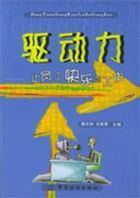There was no difficulty in accounting for his readiness to sacrifice himself in the interests of Oscar's tranquillity. He never did things by halves--he liked dashing at difficulties which would have made other men pause. The same zeal in his brother's service which had saved Oscar's life at the Trial, might well be the zeal that animated him now. The perplexity that I felt was not roused in me by the course that he had taken--but by the language in which he justified himself, and, more still, by his behavior to me while he was speaking. The well-bred brilliant young fellow of my previous experience, had now turned as dogged and as ungracious as a man could be. He waited to hear what I had to say to him next, with a hard defiance and desperation of manner entirely uncalled for by the circumstances, and entirely out of harmony with his character, so far as I had observed it. That there was something lurking under the surface, some inner motive at work in him which he was concealing from his brother and concealing from me, was as plainly visible as the sunshine and shade on the view that I was looking at from the summer-house. But what that something was, or what that inner motive might be, it baffled my utmost sagacity to guess. Not the faintest idea of the terrible secret that he was hiding from me, crossed my mind.
Innocent of all suspicion of the truth, there I sat opposite to him, the unconscious witness of that unhappy man's final struggle to be true to the brother whom he loved, and to master the devouring passion that consumed him. So long as Lucilla falsely believed him to be disfigured by the drug, so long the commonest consideration for her tranquillity would, in the estimation of others, excuse and explain his keeping out of her presence. In that separation, lay his last chance of raising an insurmountable barrier between Lucilla and himself. He had already tried uselessly to place another obstacle in the way--he had vainly attempted to hasten the marriage which would have made Lucilla sacred to him as his brother's wife. That effort having failed, there was but one honorable alternative left to him--to keep out of her society, until she was married to Oscar. He had accepted the position in which Oscar had placed him, as the one means of reaching the end in view without exciting suspicion of the truth--and he had encountered, as his reward for the sacrifice, my ignorant protest, my stupid opposition, set as obstacles in his way! There were the motives--the pure, the noble motives--which animated him, as I know them now. There is the right reading of the dogged language that mystified me, of the defiant manner that offended me; interpreted by the one light that I have to guide my pen--the light of later events!
"Well?" he said. "Are we allies, or not? Are you with me or against me?"
I gave up attempting to understand him; and answered that plain question, plainly.
"I don't deny that the consequences of undeceiving her may be serious," I said. "But, for all that, I will have no share in the cruelty of keeping her deceived."
Nugent held up his forefinger, warningly.
"Pause, and reflect, Madame Pratolungo! The mischief that you may do, as matters stand now, may be mischief that you can never repair. It's useless to ask you to alter your mind. I only ask you to wait a little.
There is plenty of time before the wedding-day. Something may happen which will spare you the necessity of enlightening Lucilla with your own lips."
"What can happen?" I asked.
"Lucilla may yet see him, as we see him," Nugent answered. "Lucilla's own eyes may discover the truth."
"What! have you not abandoned the mad notion of curing her blindness, yet?"
"I will abandon my notion when the German surgeon tells me it is mad. Not before."
"Have you said anything about it to Oscar?"
"Not a word. I shall say nothing about it to anybody but you, until the German is safe on the shores of England."
"Do you expect him to arrive before the marriage?"
"Certainly! He would have left New York with me, but for one patient who still required his care. No new patients will tempt him to stay in America. His extraordinary success has made his fortune. The ambition of his life is to see England: and he can afford to gratify it. He may be here by the next steamer that reaches Liverpool."
"And when he does come, you mean to bring him to Dimchurch?"
"Yes--unless Lucilla objects to it."
"Suppose Oscar objects? She is resigned to be blind for life. If you disturb that resignation with no useful result, you may make an unhappy woman of her for the rest of her days. In your brother's place, I should object to running that risk."
"My brother is doubly interested in running the risk. I repeat what I have already told you. The physical result will not be the only result, if her sight can be restored. There will be a new mind put into her as well as a new sense. Oscar has everything to dread from this morbid fancy of hers as long as she is blind. Only let her eyes correct her fancy--only let her see him as we see him, and get used to him, as we have got used to him; and Oscar's future with her is safe. Will you leave things as they are for the present, on the chance that the German surgeon may get here before the wedding-day?"
I consented to that; being influenced, in spite of myself, by the remarkable coincidence between what Nugent had just said of Lucilla, and what Lucilla had said to me of herself earlier in the day. It was impossible to deny that Nugent's theory, wild as it sounded, found its confirmation, so far, in Lucilla's view of her own case. Having settled the difference between us in this way, for the time being, I shifted our talk next to the difficult question of Nugent's relations towards Lucilla. "How are you to meet her again," I said, "after the effect you produced on her at the meeting to-day?"
He spoke far more pleasantly in discussing this side of the subject. His language and his manner both improved together.















